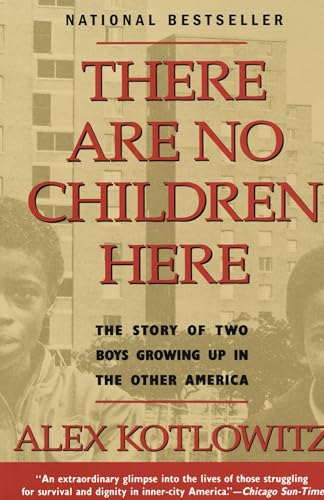 In the meantime I received William Boynton’s The New New Journalism from my old roommate Ayse and started reading it. Boynton’s carefully structured questions provide for a similar flow for each author he interviews, thus highlighting the differences in style, discipline, and inspiration in each author. The New New Journalism is a great look into the minds of some amazing authors of our time, providing interesting information as to how they pick their topics, as well as quirky information about how they go about getting their work done. Another great side of Boynton’s book is that it ties the New Journalists of Tom Wolfe to today, and provides a great reading list. I already added Acts of Faith by Philip Caputo, In Cold Blood by Truman Capote, Coyotes by Ted Conover, There are No Children Here by Alex Kotlowitz and American Ground by William Langewiesche to my already long reading list. Another advantage is that you can pick up the book and read about any author included for a brief period and then rest the book a little.
In the meantime I received William Boynton’s The New New Journalism from my old roommate Ayse and started reading it. Boynton’s carefully structured questions provide for a similar flow for each author he interviews, thus highlighting the differences in style, discipline, and inspiration in each author. The New New Journalism is a great look into the minds of some amazing authors of our time, providing interesting information as to how they pick their topics, as well as quirky information about how they go about getting their work done. Another great side of Boynton’s book is that it ties the New Journalists of Tom Wolfe to today, and provides a great reading list. I already added Acts of Faith by Philip Caputo, In Cold Blood by Truman Capote, Coyotes by Ted Conover, There are No Children Here by Alex Kotlowitz and American Ground by William Langewiesche to my already long reading list. Another advantage is that you can pick up the book and read about any author included for a brief period and then rest the book a little.
 I wanted to take a break from The New New Journalism and turned to The Corrections by Jonathan Franzen, which had been sitting on my shelf since my birthday. Nancy, who presented me with the novel, was upset that the hard cover edition she bought had an unremoveable Oprah’s Book Club sticker on it, which I promised to cover with an It was in Nancy’s Book Club First sticker, but I did not get around to that yet. Regardless, The Corrections blew my mind. The main reasons I wanted to read the novel were the discussions on The Millions and the fact that almost everyone I know in my age group had laid hands on it fairly recently. So, I turned to it on a hot sticky New York evening, cranked my AC and sat in my room all night reading. The next day was a Friday, and I was so stuck to the story that all I could do at work was sit at my desk and keep reading, pretty much non-stop, until I finished the novel on Sunday night. At about 4 AM on Monday morning, I emailed my boss and let her know that I would not be able to attend work because of the severe depression that The Corrections caused in me. Here is why: I loved the novel and Franzen’s style, and although Enid comes across as a very stereotypical bickering mother, and Alfred’s dementia – with it’s stark contrast to his past – is a common disease in our times, and Chip is readily accessible, lovable, and charismatic, and Denise is righteously immoral in her actions, and Gary is a self-pitying bastard, and that every piece of the story seems banal when looked at from this perspective, the mere reality of The Corrections moved me deeply. I thoroughly enjoyed the way Franzen organized the book and related the individual stories of each character, and how, that, in the very end, reaches a lukewarm resolve. Finishing The Corrections I felt as if I should be happy about the outcome, but the price that was paid, the thought that this story could take place in my life, and that some of the characters – though maybe through different relations – might exist around me caused an inexplicable sadness. All the sobbing aside, I discovered soon upon finishing The Corrections that discussing the cast of a probable Hollywood movie based on the novel makes for a great conversation. I remember reading with great interest when the discussion took place on The Millions and at this point the only person I can contribute to the fray is Sam Rockwell as Chip. That said, The Corrections is probably better off left alone by Hollywood, and a wonderful read for all those who want to glimpse into a bit of Americana, as well as a bit of themselves.
I wanted to take a break from The New New Journalism and turned to The Corrections by Jonathan Franzen, which had been sitting on my shelf since my birthday. Nancy, who presented me with the novel, was upset that the hard cover edition she bought had an unremoveable Oprah’s Book Club sticker on it, which I promised to cover with an It was in Nancy’s Book Club First sticker, but I did not get around to that yet. Regardless, The Corrections blew my mind. The main reasons I wanted to read the novel were the discussions on The Millions and the fact that almost everyone I know in my age group had laid hands on it fairly recently. So, I turned to it on a hot sticky New York evening, cranked my AC and sat in my room all night reading. The next day was a Friday, and I was so stuck to the story that all I could do at work was sit at my desk and keep reading, pretty much non-stop, until I finished the novel on Sunday night. At about 4 AM on Monday morning, I emailed my boss and let her know that I would not be able to attend work because of the severe depression that The Corrections caused in me. Here is why: I loved the novel and Franzen’s style, and although Enid comes across as a very stereotypical bickering mother, and Alfred’s dementia – with it’s stark contrast to his past – is a common disease in our times, and Chip is readily accessible, lovable, and charismatic, and Denise is righteously immoral in her actions, and Gary is a self-pitying bastard, and that every piece of the story seems banal when looked at from this perspective, the mere reality of The Corrections moved me deeply. I thoroughly enjoyed the way Franzen organized the book and related the individual stories of each character, and how, that, in the very end, reaches a lukewarm resolve. Finishing The Corrections I felt as if I should be happy about the outcome, but the price that was paid, the thought that this story could take place in my life, and that some of the characters – though maybe through different relations – might exist around me caused an inexplicable sadness. All the sobbing aside, I discovered soon upon finishing The Corrections that discussing the cast of a probable Hollywood movie based on the novel makes for a great conversation. I remember reading with great interest when the discussion took place on The Millions and at this point the only person I can contribute to the fray is Sam Rockwell as Chip. That said, The Corrections is probably better off left alone by Hollywood, and a wonderful read for all those who want to glimpse into a bit of Americana, as well as a bit of themselves.






